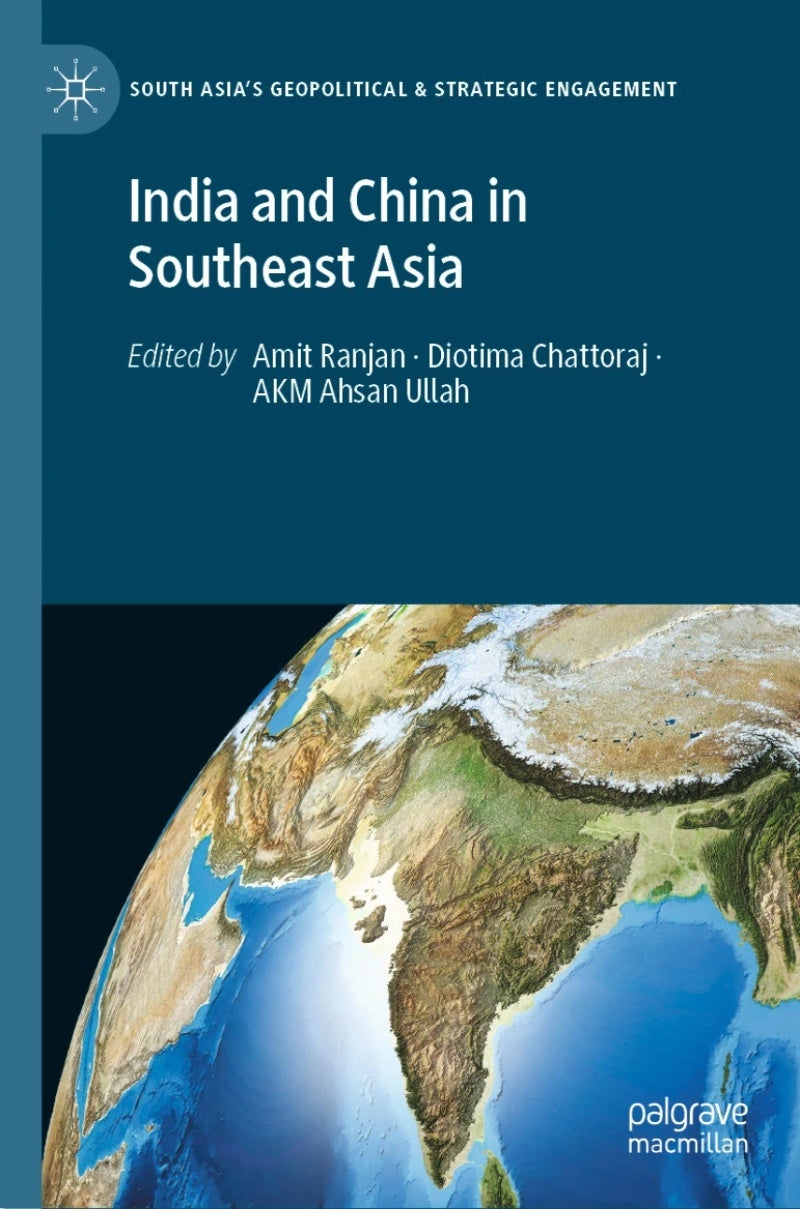
| Title: | India and China in Southeast Asia |
| Author/s: | Amit Ranjan, Diotima Chattoraj, AKM Ahsan Ullah |
| Abstract: | This book focuses on the increasing contest and limited cooperation between India and China in Southeast Asia, which is beyond their shared border. This sort of engagement shows how their bilateral tensions are also playing out in the extraterritorial region where the two countries are involved because of history, economics, and security reasons. Chapters in this book look at the various facets of their engagements in the Southeast Asia. It contains both thematic and bilateral issues. Some of the chapters such as on infrastructure, defence etc takes stock of India-China engagements in Southeast Asia, while others mainly deal with how the two Asian powers interact with the individual countries of the region. |
| Date: | 21 November 2024 |
| More From: |
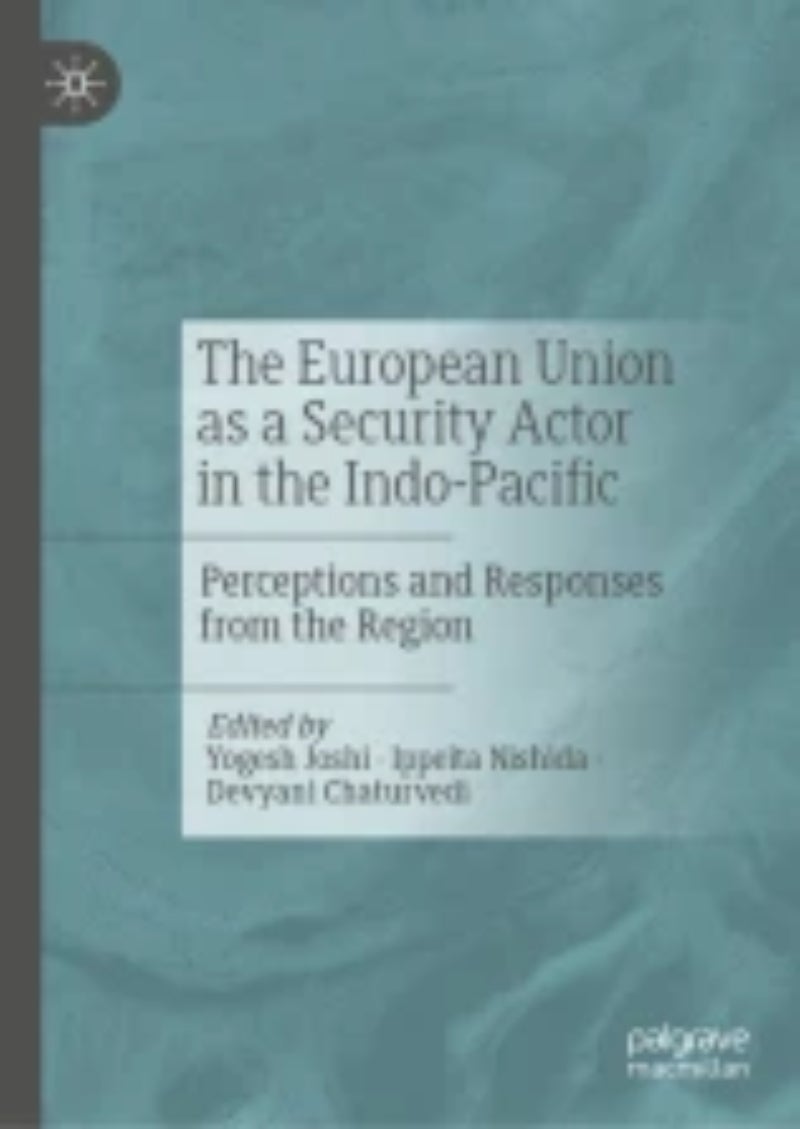
| Title: | The European Union as a Security Actor in the Indo-Pacific |
| Author/s: | Yogesh Joshi, Ippeita Nishida, Devyani Chaturvedi |
| Abstract: | This edited volume provides state perspectives on Europe’s security engagement in the Indo-Pacific from four different sub-regions and twelve different countries in the Indo-Pacific, namely – East Asia (Japan, China and South Korea); Southeast Asia (Indonesia, Vietnam and Singapore); Oceania (Australia, New Zealand and Fiji) and lastly South Asia (India, Sri Lanka and the Maldives). By engaging with diverse countries, the framing in the book also allows for the inclusion of established and emerging regional groupings, such as the Association of Southeast Asian Nations (ASEAN) and the Quadrilateral Security Dialogue (Quad). |
| Date: | 9 November 2024 |
| More From: |
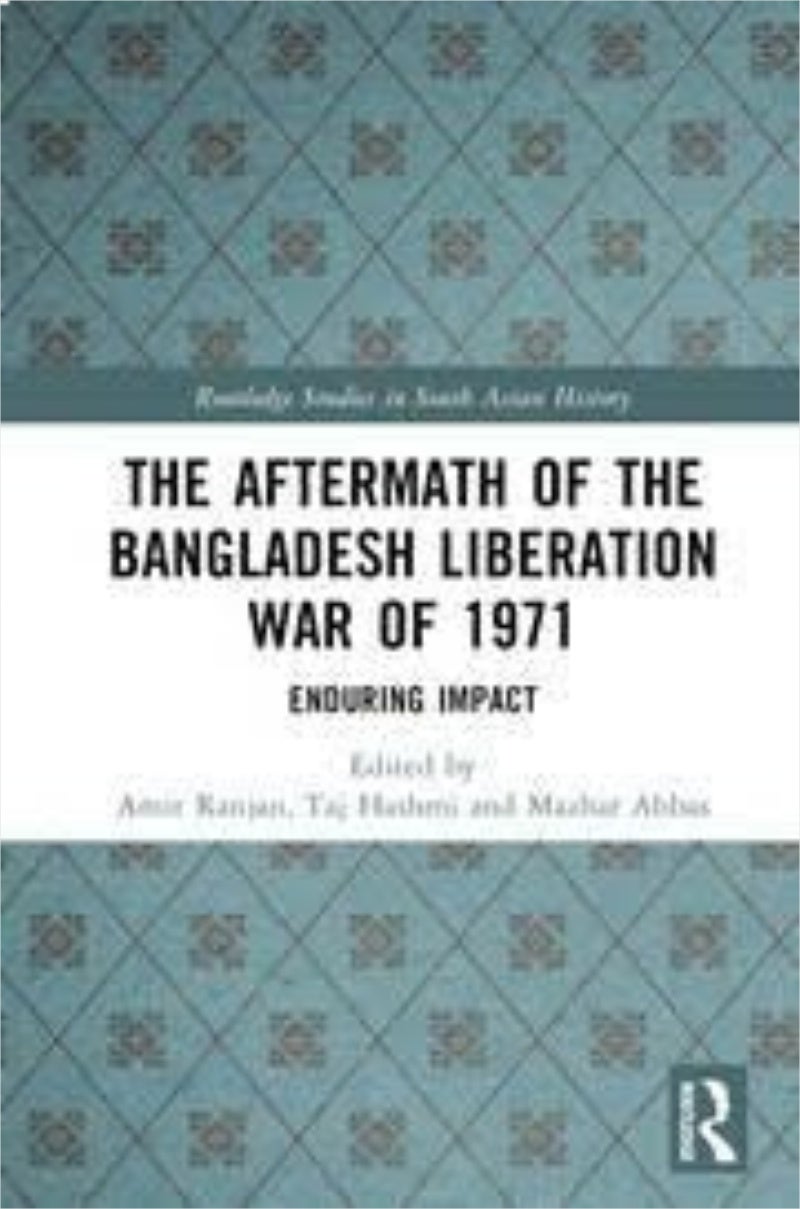
| Title: | The Aftermath of the Bangladesh Liberation War of 1971: Enduring Impact |
| Author/s: | Amit Ranjan, Taj Hashmi, Mazhar Abbas |
| Abstract: | This book analyses the human dimension during and after the Bangladesh Liberation War of 1971.
The chapters investigate questions of belonging and being an “alien”, civil rights and ethnic demands, and broader issues of citizenship and statelessness. The analysis centers around the situation of those who crossed into the Indian side of the border during the Liberation War, the Bengali-speaking population who chose Pakistan as their country after the birth of Bangladesh, and “stranded Pakistani” or “Bihari Muslims” living in Bangladesh. The book addresses three key questions: how do the modern nation-states of India, Pakistan, and Bangladesh categorize citizens based on the narratives of 1971; how the acceptance of certain groups as part of the Indian citizenry affected its concept of belonging; and, after 1971, how do Pakistan and Bangladesh define who is part of their citizenry, and how do so-called “aliens” negotiate their identity in national debates. A timely contribution to the subject of forced migration, citizenship, and identities in South Asia, edited by three academics with Indian, Pakistani, and Bangladeshi heritage, this book will be of interest to a variety of academics studying the history, politics, and sociology of South Asia. |
| Date: | 2 September 2024 |
| More From: |
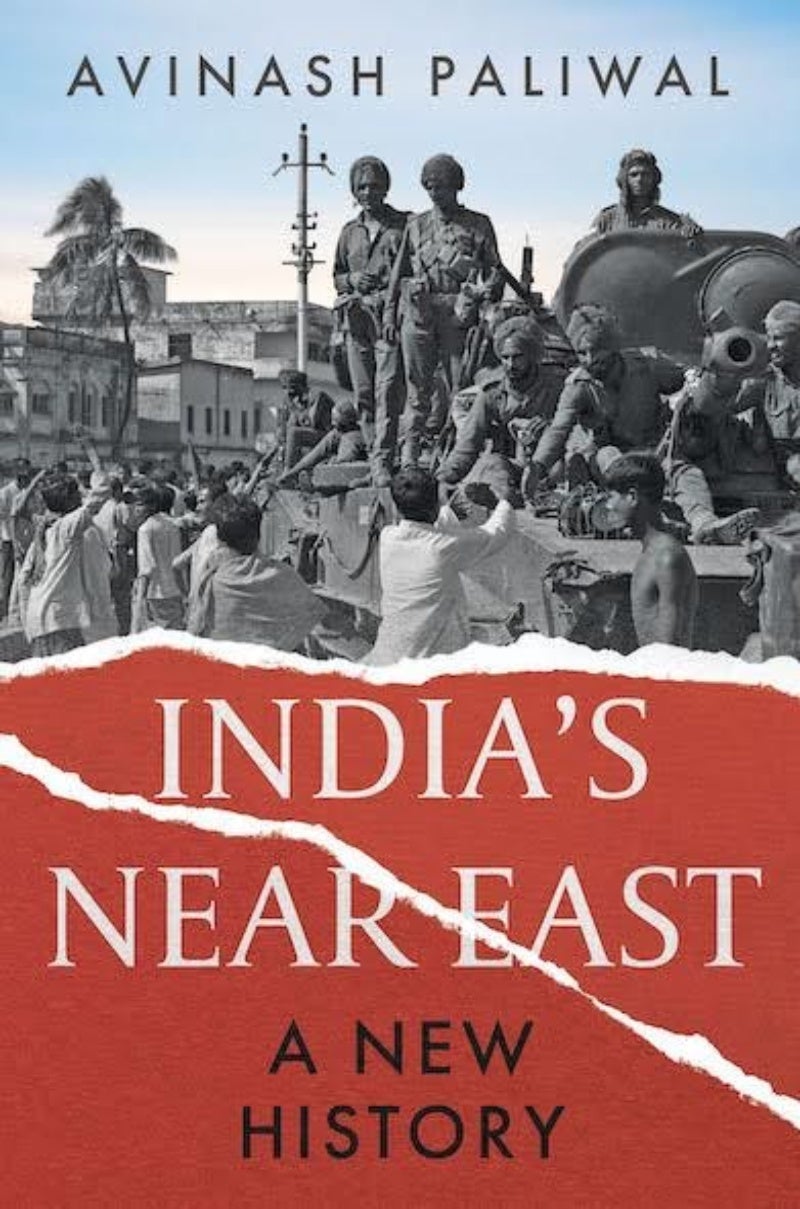
| Title: | India’s Near East: A New History |
| Author/s: | Avinash Paliwal |
| Abstract: | India’s near east encompasses Bangladesh, Myanmar and the Indian states of the ‘Northeast’—Arunachal Pradesh, Sikkim, Assam, Nagaland, Manipur, Meghalaya, Tripura and Mizoram. Celebrated as a theatre of geo-economic connectivity typified by India’s ‘Act East’ policy, the region is key not only to India’s great-power rivalry with China, which first boiled over in the 1962 war, but to the idea(s) of India itself. It is also one of the most intricately partitioned lands anywhere on Earth. Rent by communal and class violence, the region has birthed extreme forms of religious and ethnic nationalism and communist movements. The Indian state’s survival instinct and pursuit of regional hegemony have only accentuated such extremes.
This book scripts a new history of India’s eastward-looking diplomacy and statecraft. Narrated against the backdrop of separatist resistance within India’s own northeastern states, as well as rivalry with Beijing and Islamabad in Yangon and Dhaka, it offers a simple but compelling argument. The aspirations of ‘Act East’ mask an uncomfortable truth: India privileges political stability over economic opportunity in this region. In his chronicle of a state’s struggle to overcome war, displacement, and interventionism, Avinash Paliwal lays bare the limits of independent India’s influence in its near east. |
| Date: | 31 July 2024 |
| More From: |
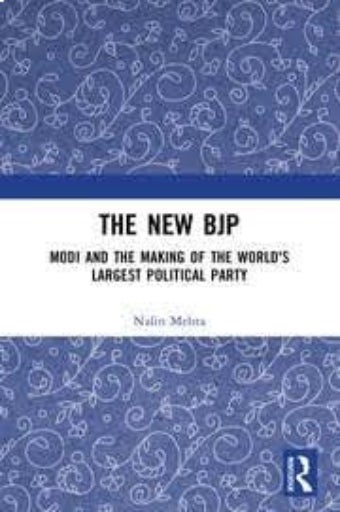
| Title: | The New BJP Modi and the Making of the World’s Largest Political Party |
| Author/s: | Nalin Mehta |
| Abstract: | This book examines how the BJP became the world’s largest political party. It goes beyond the usual narrative of the party’s Hindutva politics to explain how, under Narendra Modi, the party reshaped the Indian polity using its own brand of social engineering. According to the findings of this book, this reconstruction was cleverly powered by new caste coalitions, the claim of a new welfare state that focused on marginalised social groups and the making of a women-voter base.
Based on data from three unique indices—the Mehta–Singh Social Index, which studies the caste composition of Indian political parties; the Narad Index, which calculates communication patterns across topics and audiences; and PollNiti, which connects and tallies hundreds of political and economic datasets—The New BJP is full of startling insights into the way both the party and the country function. Previously untapped historical records, exclusive interviews with party leaders and comprehensive reportage from across India provide a fresh understanding of the BJP’s growth areas, including the Northeast and south India. |
| Date: | 11 July 2024 |
| More From: |
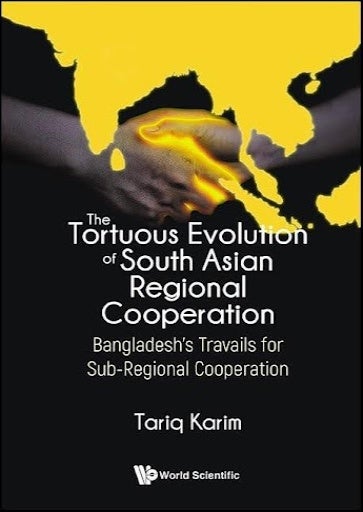
| Title: | The Tortuous Evolution of South Asian Regional Cooperation: Bangladesh’s Travails for Sub-Regional Cooperation |
| Author/s: | Tariq Karim |
| Abstract: | The dramatic shift of the Indian subcontinent, once highly integrated for a millennium until its Partition in 1947, into one of the world's least integrated regions, raises questions about this swift transformation. The formation of the South Asian Association for Regional Cooperation (SAARC) by the newly partitioned states aimed at fostering collaboration. However, initial efforts proved futile, prompting a comparison with the successful dynamics of the European Union (EU) and the Association of Southeast Asian Nations (ASEAN).
Drawing on his experience in the Bangladesh foreign ministry and as a World Bank consultant, Ambassador Tariq Karim's book provides insights into South Asian regional cooperation. It traverses history, analyses cooperation models, examines various dimensions of collaboration, and envisions extending sub-regional cooperation to the broader Bay of Bengal region. Ambassador Karim's narrative highlights contrast between SAARC's challenges and the achievements of the EU and ASEAN, emphasizing key factors that differentiate successful regional initiatives. This book not only serves as a documentation of historical shifts but also envisages a future where the Indian subcontinent and its neighboring regions embrace enhanced collaboration for mutual benefit. |
| Date: | 24 June 2024 |
| More From: |
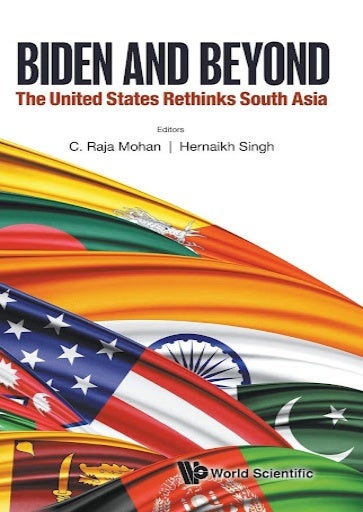
| Title: | Biden And Beyond: The United States Rethinks South Asia |
| Author/s: | C Raja Mohan, Hernaikh Singh |
| Abstract: | Biden and Beyond: The United States Rethinks South Asia captures the significant transitions unfolding in the US policy towards South Asia. Developed across two administrations, led by Donald Trump and Joe Biden, the US' South Asia policy has moved away from more than four decades of focus on Afghanistan, especially after the military withdrawal from Afghanistan in August 2021, to now viewing the region through the Indo-Pacific prism. The military withdrawal has also undermined the US' long-standing strategic partnership with Pakistan that was viewed as the frontline state in dealing with the turmoil in Afghanistan. This has substantially altered Washington's geopolitical perspective of the South Asian subcontinent.
Furthermore, the rising concerns in Washington on China have seen the formulation of an Indo-Pacific strategy that has elevated India to the top of US strategic priorities. The deepening tensions between China and the US, as well as between Beijing and Delhi, have set the stage for a new strategic partnership between Washington and Delhi. Amidst Washington's competition with Beijing, the Himalayan region girding the underbelly of China has acquired an importance of its own. The maritime perspective of the US has also raised the value of the subcontinent's waters and provided an incentive for Washington to turn new attention to the strategic islands of the Maldives and Sri Lanka. Taken together, these factors presage a transformation in the interaction between the US and the South Asian subcontinent in the coming years. This book, hence, brings into the conversation these recent changes and sheds new light on contemporary US-South Asia relations. |
| Date: | 10 June 2024 |
| More From: |
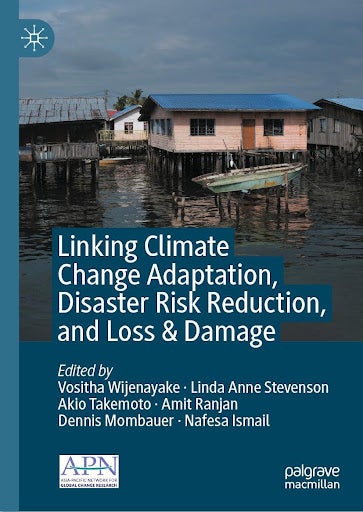
| Title: | Linking Climate Change Adaptation, Disaster Risk Reduction, and Loss & Damage |
| Author/s: | Amit Ranjan |
| Abstract: | This book advances knowledge on loss & damage (L&D) and its interlinkages with climate adaptation and disaster risk reduction. The book includes twelve case studies conducted across South and Southeast Asia, covering sectors including agriculture, rural livelihoods, energy, infrastructure and natural resources. These studies provide insights into complex climate-induced L&D, enhancing local, national and regional knowledge and contributing to global agendas. |
| Date: | 30 May 2024 |
| More From: |
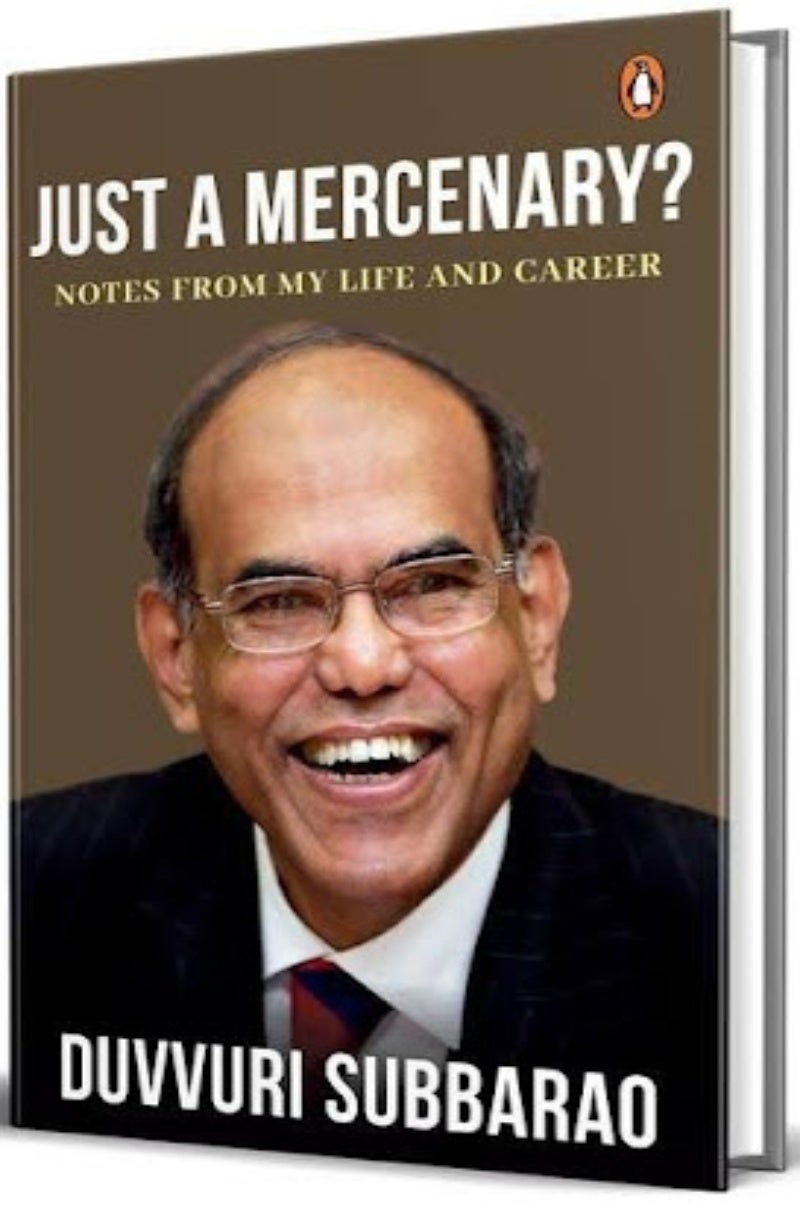
| Title: | Just a Mercenary? – Notes from My Life and Career |
| Author/s: | Duvvuri Subbarao |
| Abstract: | At the start of his career as sub-collector of Parvathipuram sub-division in north-coastal Andhra Pradesh way back in 1974, Subbarao learnt—the hard way—that tribal development requires more than enthusiasm; it requires, most of all, an understanding of poverty.
Nearly forty years later, in 2013, as the governor of the Reserve Bank of India in the midst of a fierce exchange rate crisis, Subbarao learnt—once again the hard way—the harsh challenges of emerging economies in an unequal world. Bookended by these assignments is the remarkable journey of a small-town boy from a modest background to the top echelons of India’s civil service and then on to the helm of the country’s central bank. Subbarao recounts that journey—his hopes and despair, his successes and setbacks, his mistakes and misdeeds, and the lessons he learnt along the way—with rare candour and honesty. The subtext of that story though is his constant soul searching about whether he has given back to society more than he received. |
| Date: | 30 April 2024 |
| More From: |
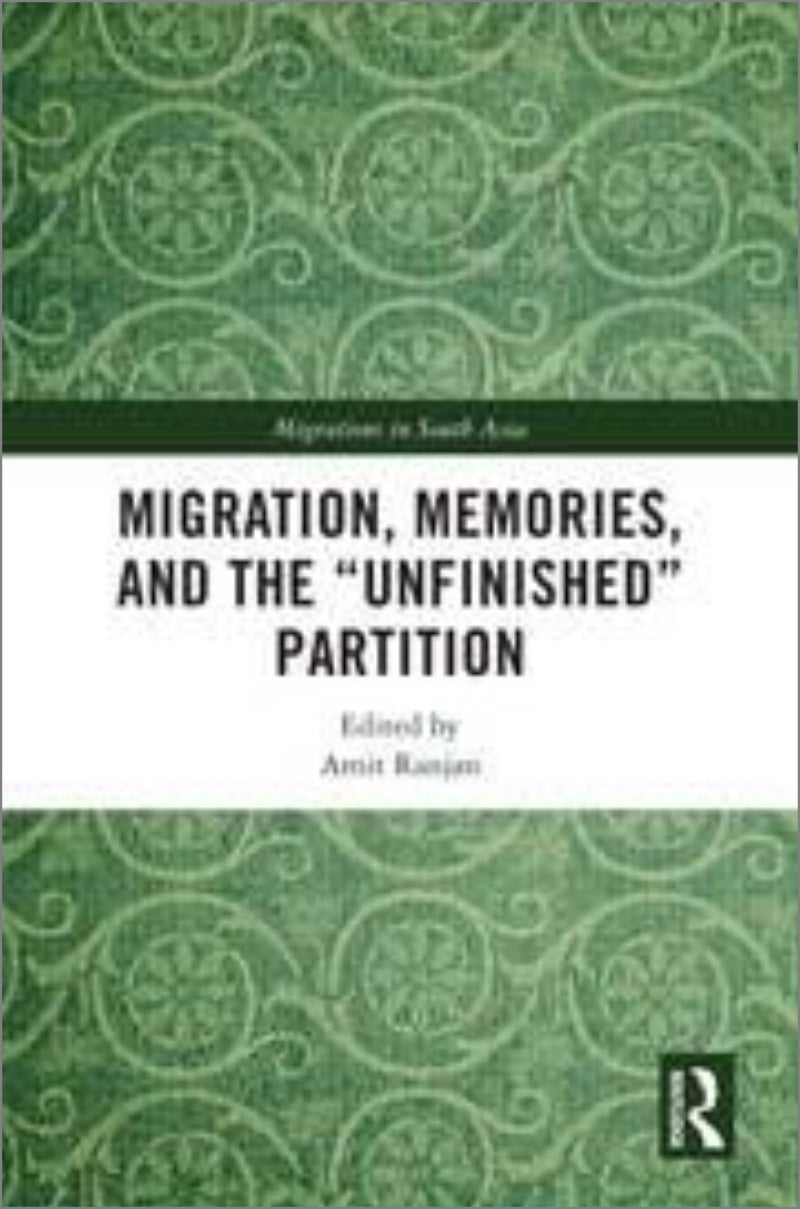
| Title: | Migration, Memories, and the “Unfinished” Partition |
| Author/s: | Amit Ranjan |
| Abstract: | This book looks at migration through the lens of the Partition of India in 1947. The Partition uprooted millions of people from their homelands. This volume examines the initial difficulties faced by the refugees in settling down in their adopted land. It analyses the state’s efforts in facilitating the movement of refugees, the processes it initiated to resettle them after Partition, and the extent to which it was successful. This book also investigates the links between socio-political developments in contemporary India, Pakistan, and Bangladesh as a result of the Partition.
Drawing on archival sources, oral histories and literary representations, the contributing authors discuss and analyse the experiences of the migrated population. Part of the Migrations in South Asia series, this book will be an important read for scholars and researchers of migration studies, refugee studies, Partition studies, Indian history, Indian politics, and South Asian studies. |
| Date: | 29 March 2024 |
| More From: |
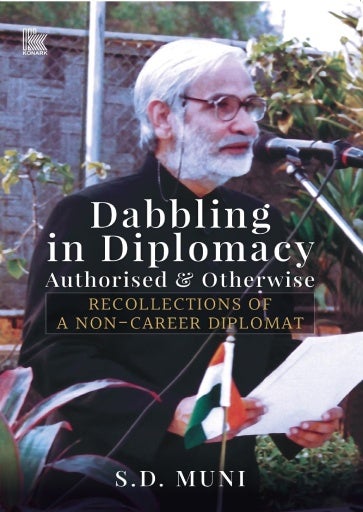
| Title: | Dabbling in Diplomacy: Authorised & Otherwise: Recollections of a Non-Career Diplomat |
| Author/s: | S D Muni |
| Abstract: | Authored by well-known South Asian expert, Professor S D Muni, the publication offers readers many interesting geostrategic details from India’s neighbourhood, including Nepal, Sri Lanka, Bhutan, and even Laos. In the publication, Professor Muni shares interesting anecdotes of his many interactions with senior leaders of Nepal and Sri Lanka, and of his ringside view of some of the major developments in the region.
Professor Muni has penned his valuable experiences during his four decades of teaching, and conducting and supervising research in international relations and South Asian studies, primarily at Jawaharlal Nehru University and the Institute of South Asian Studies at the National University of Singapore. |
| Date: | 25 February 2024 |
| More From: |
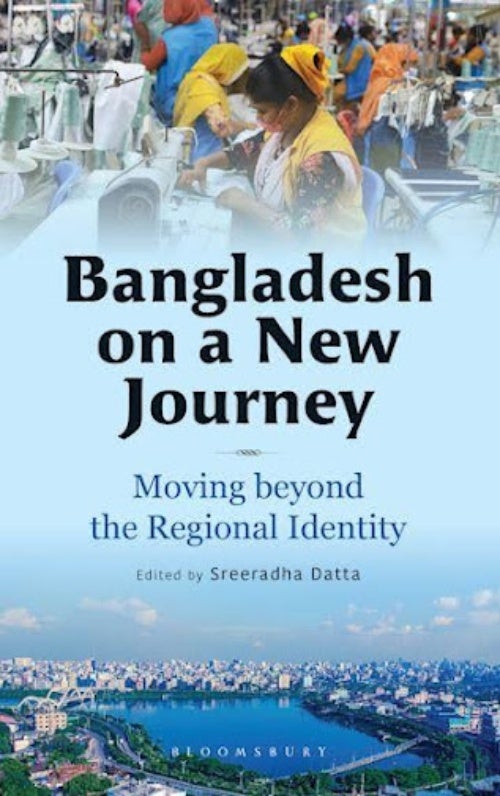
| Title: | Bangladesh on a New Journey: Moving Beyond the Regional Identity |
| Author/s: | Sreeradha Datta |
| Abstract: | This volume contributes to understanding Bangladesh's growth story, as it celebrates 50 years of independence. The fastest growing South Asian state is being recognised as an important partner and model case study with increasing global relevance by world powers. Sreeradha Datta reviews many of its critical bilateral relationships, as well as its expanding influence in the region and world beyond, enabling an understanding of how Bangladesh's growth trajectory complements and informs its foreign policy aims.
The volume has a mixture of thematic and bilateral chapters, and includes the active Bangladeshi diaspora population and its influence on the country's unfolding narrative. Datta features the viewpoints of key Bangladeshi policy makers; expert takes on how the world is engaging with Bangladesh; and covers the growing salience of Bangladesh's foreign policy, reflecting its new acquired economic status. |
| Date: | 30 January 2024 |
| More From: |
Load more


